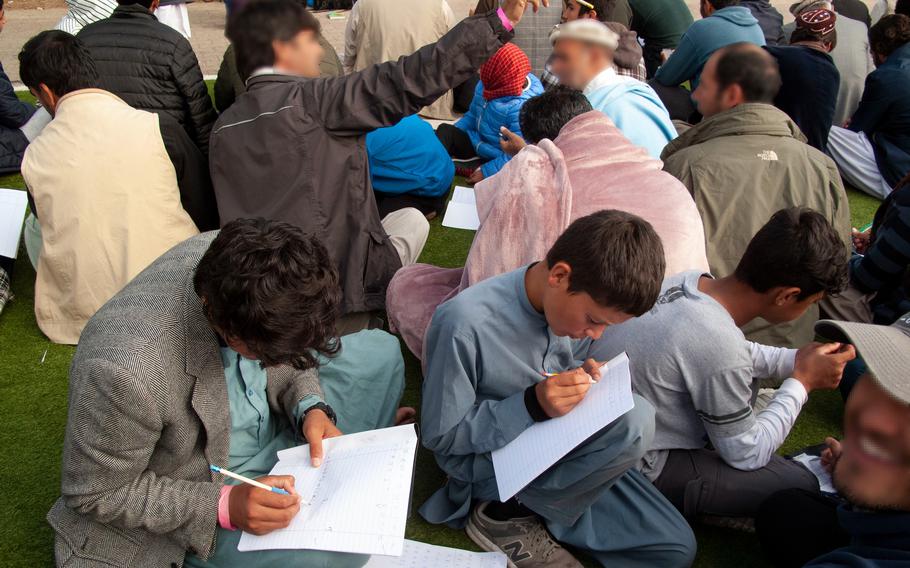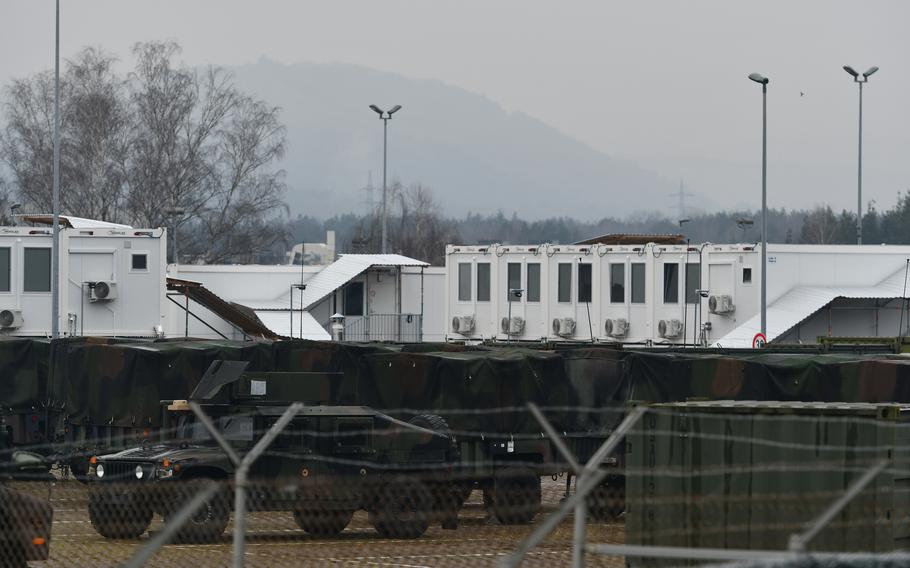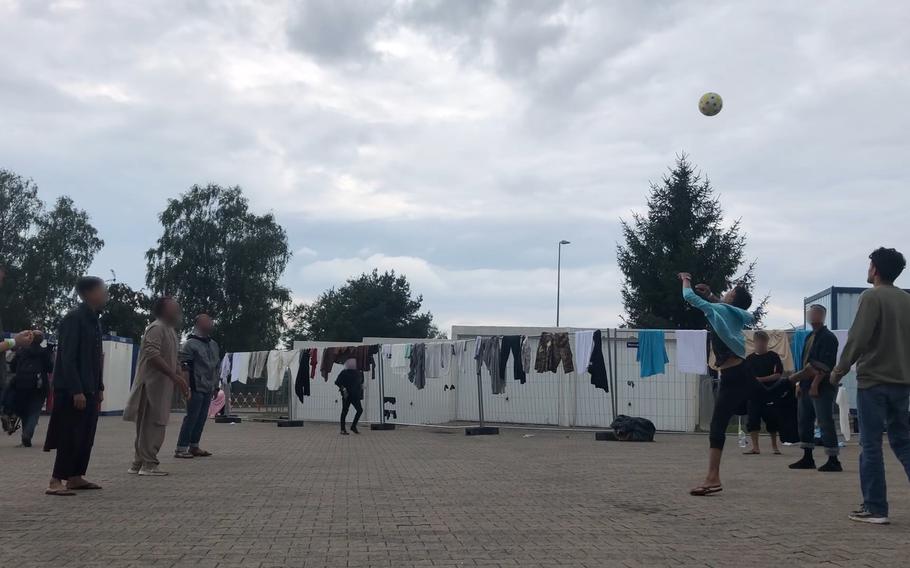
Afghan men and boys attend an English lesson at Rhine Ordnance Barracks in Kaiserslautern, Germany, in 2021. The last Afghan special immigrant visa applicants have now departed ROB. (Stars and Stripes)
KAISERSLAUTERN, Germany — The last Afghan special immigrant visa applicants housed at Rhine Ordnance Barracks have departed, effectively ending the involvement of the U.S. military in Germany in their resettlement, according to an American advocate with knowledge of the situation.
The advocate, who was granted anonymity to speak about sensitive matters, said the Army base in the sprawling Kaiserslautern Military Community shed its role in the process before President Donald Trump took office on Jan. 20.
Afghan assistance efforts at ROB were winding down anyway, with a contract between the Pentagon and KBR Services, a U.S.-based firm that handles logistics and coordination for evacuating Afghans through Germany, due to expire Feb. 15.
In the wake of the Taliban’s 2021 return to power amid the withdrawal of American forces, the federal government and various advocacy groups have been working to give Afghan supporters of the U.S. forces during the war a path to immigrate legally.
That was accomplished through the SIV program. But because the U.S. lacks a diplomatic presence in Kabul, Afghans must first travel to third-party countries for processing before they can be granted new lives in America.
In addition to Germany, Albania and Qatar have also been used to evacuate Afghans.

Housing units used for sheltering Afghan evacuees are pictured at Rhine Ordnance Barracks in Kaiserslautern, Germany, on Jan. 15, 2025. All Afghan special immigrant visa applicants who were living at ROB have departed. (Lara Korte/Stars and Stripes)
Special immigrant visas are available to Afghans who worked with U.S. forces during the nearly 20-year war in roles such as interpreters, drivers and advisers. Because of their former affiliation, they face an increased risk of retaliation from the Taliban.
In the initial stages of evacuation, after the U.S.-backed Afghan administration collapsed in the summer of 2021, both Ramstein Air Base and Rhine Ordnance Barracks were used as support sites for the applicants.
Resettlement work later was stopped at both installations but resumed solely at ROB in 2023.
Eligible Afghans were flown to Kaiserslautern and sheltered in containerized housing units along a stretch of the autobahn A6 until they were ready to depart, having secured their special immigrant visa.
The last Afghan SIV seeker at the base left sometime in early to mid-January, the American advocate said.
The State Department declined to answer questions about the recent SIV assistance efforts in Kaiserslautern, citing a need to protect the privacy of those involved.

Afghan men play volleyball without a net in a concrete courtyard at Rhine Ordnance Barracks in Kaiserslautern, Germany, in 2021. The Army installation housed more than 3,000 Afghan evacuees before resettlement in the U.S. began. The last Afghan special immigrant visa applicants have now departed ROB. (Stars and Stripes)
Since 2021, the overall operation has resettled more than 180,000 Afghans, according to the State Department.
With Germany no longer playing a role in the process, the Philippines has joined the mix of third-party countries taking in Afghan SIV applicants.
But headwinds in Washington have added to the applicants’ travails.
A recent executive order signed by President Donald Trump halting foreign aid suspended the Afghan SIV program, according to #AfghanEvac, a nonprofit coalition spearheading the effort.
The order has stranded thousands of Afghan families abroad because the State Department can’t book flights for the SIV seekers, according to the group.
Also, services at third-country platforms have been halted, as have federal assistance to newly arrived SIV holders and support in finding housing and enrolling their children in school, the group said.